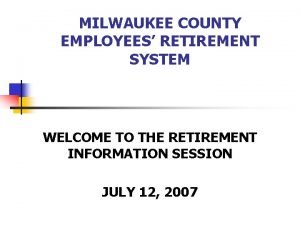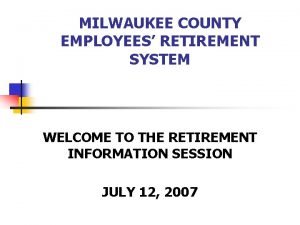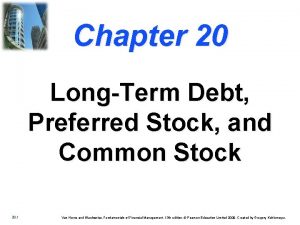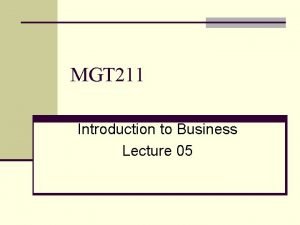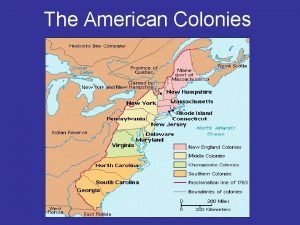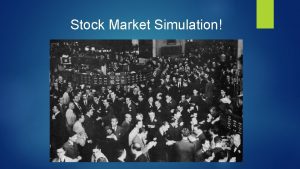Types of Colonies Joint Stock colonies granted to


















- Slides: 18


Types of Colonies ▪ Joint Stock – colonies granted to private companies in the hopes of creating profits from colonization ▪ Proprietary – land granted to individuals for the purpose of creating colonies; the individuals had the right then to grant land to whomever they chose ▪ Royal – colonies headed by the English crown/government itself

§ Overpopulation § Gold § Raw materials § Missionaries

MERCANTILISM: AN ECONOMIC SYSTEM IN WHICH NATIONS SEEK TO INCREASE THEIR WEALTH BY OBTAINING GOLD & SILVER AND WITH A FAVORABLE BALANCE OF TRADE MERCANTILISM

The Beginning ▪ English Restoration – Monarch would be overthrown and replaced with a Puritan leader (Oliver Cromwell) – 1661: Charles II regains the control of England ▪ Decided to go colonize the New World

§ Original sin § Saved by God’s grace § Predestination § These are characteristics of ________

§ The elect can only be admitted into the church § Man could not know who is saved § You need to be godly § Peer pressure and social status played a whole part in salvation

Organization Order § Democratic § Religious intoleration § New England Town § Focus on materialism Meetings § Self-government § Halfway Covenant

§ Living a Godly life § Inequality of man § Profit motive § Protestant work ethic § Blue laws

Enlightenment Great Awakening § Intellectual movement in Europe § Religious movement in the colonies § Emphasized science, reason, and observation

§ Movement away from a God-centered view of life to a man-centered view of life § Science and reason can answer: § Life’s mysteries § Questions about government § People could find God on their own § Questioning the leaders of the church led to questioning leaders of the government

§ Philosophy based on Christianity § Founding fathers § Belief: God put the natural laws in place, then let the universe function according to those rules § God doesn’t take part in the lives of the people § If a leader failed in responsibility to his people, the people have the right to elect someone else § Sound familiar? ? ?

§ Literacy rose in the colonies § Newspapers and books publications rose § Schools are introduced into towns § Government must protect the natural rights of man § Kings don’t govern people; people must consent

§ Revival of religion in hopes to bring people back to God § *reaction to the Enlightenment § Personal power in religion § Gave everyone something to believe in § Personal emotion over outward emotion § Fire-brimstone § Importance of the individual

§ George Whitfield § Raw emotion § Open fields § Jonathan Edwards § “sinners in the hands of an angry God”

§ New denominations § New interest in religion § New colleges to help teach ministers § Harvard § Yale § Religious toleration § Gave man importance

§ Does not work out early on § Indentured servants are cheaper § Low life expectancy § What changes? ? § Rise of English wages § Life expectancy increases § Slave for life § Royal African Company loses monopoly of slave trade § More profitable § Middle passage

§ Social hierarchy § Birth less important then in Europe § Land ownership less important § Wealth is most important § Elite close off entry § Social mobility much easier § Social pyramid § Slaves § Indentured servants/jail birds § Manual workers/hired hands § Farmers (land owning) § Lesser professionals § Aristocrats, planters, merchants, lawyers, clergymen
 Milwaukee county employees retirement system
Milwaukee county employees retirement system Positive reinforcement
Positive reinforcement Insecticide act
Insecticide act Permission granted to reproduce for classroom use
Permission granted to reproduce for classroom use Mutual fund returns may be granted pass-through status if
Mutual fund returns may be granted pass-through status if Milwaukee county retirements granted
Milwaukee county retirements granted Intrinsic rewards are psychic and self-granted
Intrinsic rewards are psychic and self-granted Long-term debt preferred stock and common stock
Long-term debt preferred stock and common stock Kriteria stock yang baik
Kriteria stock yang baik Characteristics of common shares
Characteristics of common shares Stock final de marchandises
Stock final de marchandises Mercantilism
Mercantilism Phuong nam garment joint stock
Phuong nam garment joint stock Merits and demerits of joint stock company
Merits and demerits of joint stock company Ssush1 compare and contrast
Ssush1 compare and contrast Definition of
Definition of Fpt digital retail joint stock company
Fpt digital retail joint stock company Joachimson v swiss bank corporation
Joachimson v swiss bank corporation Mgt 211
Mgt 211
